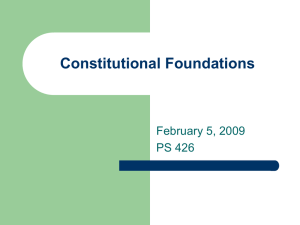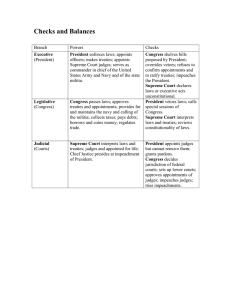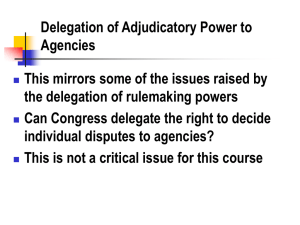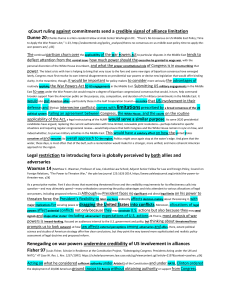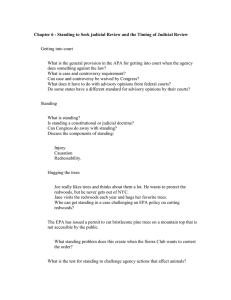Executive Powers
advertisement
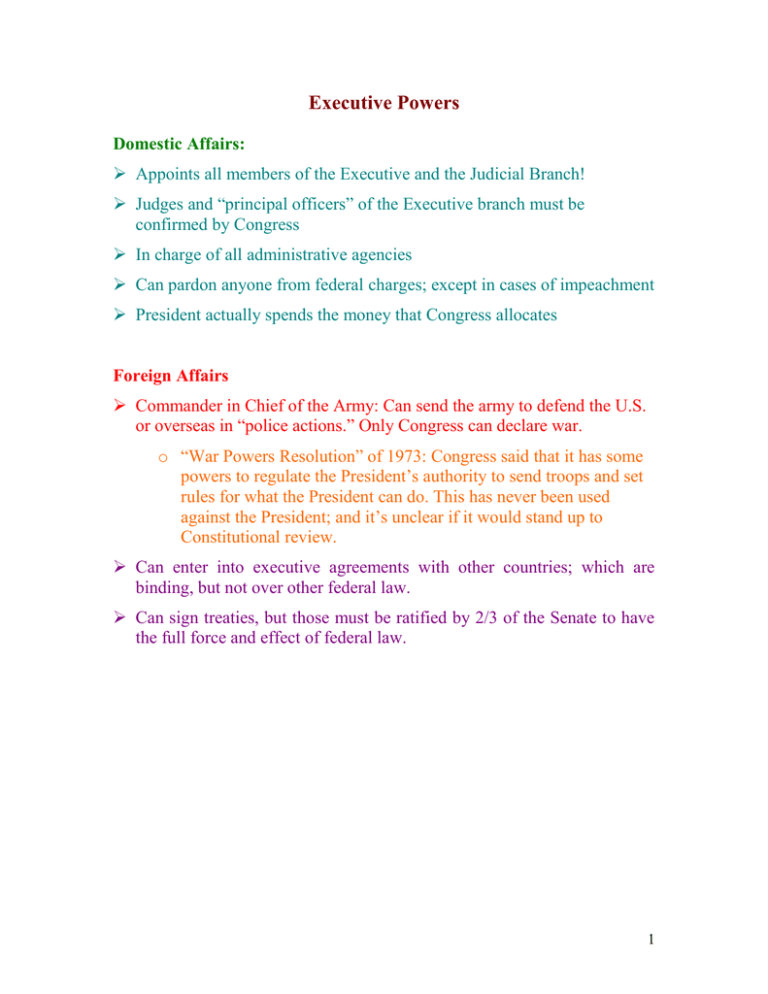
Executive Powers Domestic Affairs: Appoints all members of the Executive and the Judicial Branch! Judges and “principal officers” of the Executive branch must be confirmed by Congress In charge of all administrative agencies Can pardon anyone from federal charges; except in cases of impeachment President actually spends the money that Congress allocates Foreign Affairs Commander in Chief of the Army: Can send the army to defend the U.S. or overseas in “police actions.” Only Congress can declare war. o “War Powers Resolution” of 1973: Congress said that it has some powers to regulate the President’s authority to send troops and set rules for what the President can do. This has never been used against the President; and it’s unclear if it would stand up to Constitutional review. Can enter into executive agreements with other countries; which are binding, but not over other federal law. Can sign treaties, but those must be ratified by 2/3 of the Senate to have the full force and effect of federal law. 1 The Judiciary Supreme Court is established by the Constitution; lower courts are also governed by Article III, but they are created by Congress (who doesn’t have to create any if it doesn’t want to). Federal judges are appointed by the President and confirmed by a majority of the Senate. All federal judges enjoy life tenure. Judges can only be removed through impeachment. Federal Courts have the power to declare acts to be inconsistent with the law or to be unconstitutional. o Marbury v. Madison (The Supreme Court is the “ultimate arbiter” over Constitutional questions.) o The courts have the same power over state laws. Federal courts can only hear a “case or controversy.” Rules of the “case or controversy” requirement: 1) Standing 2) Ripeness 3) Mootness 4) Political question doctrine 5) No advisory opinions 2


